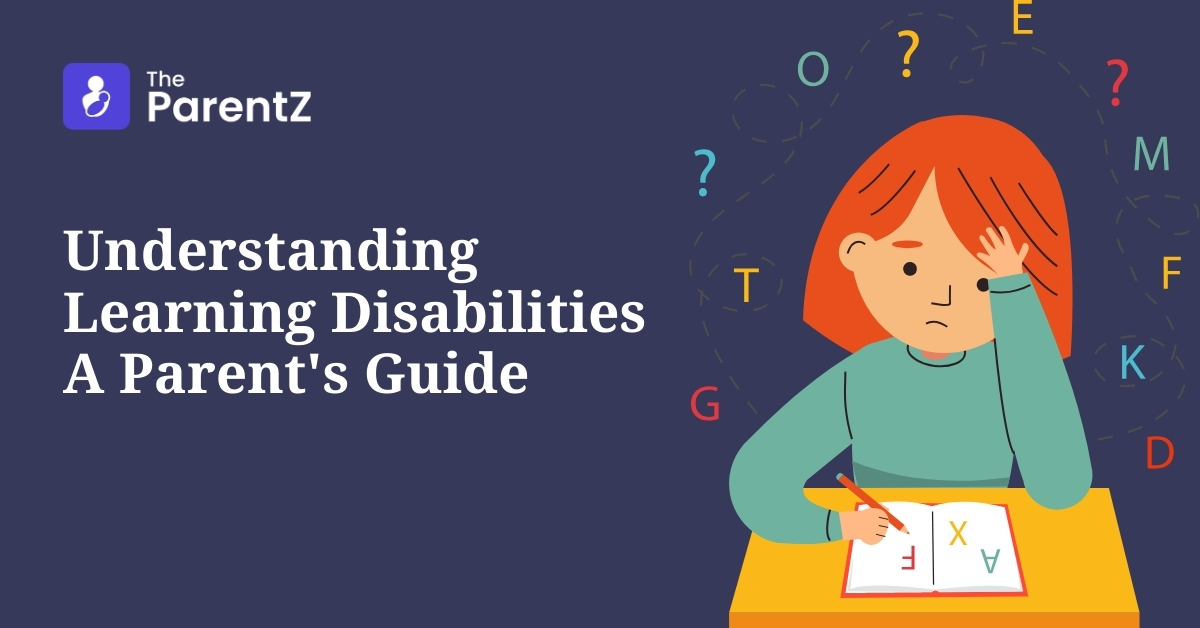Does your kid constantly struggle with reading comprehension, often become frustrated while reading assignments, and thus have low self-confidence? These signs may be signs of learning disabilities. Almost one in five children in the United States suffers from some kind of learning disability, according to a report by the National Center for Learning Disabilities. While most parents start to hide reality from kids, it is important to make your child comfortable with the fact that they learn differently. This way, they will feel comfortable acknowledging their learning approach instead of wondering why they don’t fit well. And parents play an important role in supporting their kids in dealing with their learning disabilities.
Learning Disabilities: Signs to Look For
Do you notice your child starting to feel anxious when it comes to reading? While the signs may vary, some of the most common signs that may indicate learning disabilities are given below.
- Difficulty in reading or writing
- Low math skills, particularly below grade levels.
- Struggles while understanding a concept or following the instructions.
- Problems with memory and maintaining focus during learning
- Struggles in completing a task
- Lack of time management skills
Understanding learning disabilities
Learning disabilities basically refer to various circumstances that reflect on the child’s learning and his ability to grasp things. Such kids usually struggle with low attention during studying and often feel overwhelmed when it comes to reading or writing. While there can be several forms of LDs that can be noticed in kids, some of the most common include dyslexia, ADHD, dysgraphia, or dyscalculia. While kids dealing with dyslexia and ADHD struggle with reading and maintaining focus, respectively, dysgraphia and dyscalculia encompass challenges with expressing thought and understanding math.
4 Tips to Support Kids With Learning Disabilities
Parents play an important part when it comes to supporting their child endlessly in every phase. Here are a few tips on how to make things easier for your kids.
Patience and understanding
Learning disabilities have a great impact on a child’s learning process, so having an understanding of your child becomes considerably more important. Though it might be frustrating at times, being patient with your little one can make a great difference in boosting their confidence. For example, if your child feels reading or writing is a challenging task, you will need to understand that he might need some extra time and support when helping them practice their skills.
A Customized Learning Approach for Your Kid
Does your child struggle with staying focused during the class? It might be an indicator of ADHD. Whatever it may be, a personalized learning plan plays an essential part in accommodating your child’s learning procedure, especially if he is dealing with some sort of learning disability. Besides, as parents, you can also explore some better teaching methods that will ensure your kid grasps things more effectively and in a fun way.
Consistent Encouragement
No matter how small or big, every child seeks appreciation for the efforts they put in. This consistent encouragement from your end will ensure your child is willing to practice and work on his learning skills. Moreover, providing them the opportunity to do better based on their strengths will help build their confidence.
Open communication is the key.
The role of open communication can never be stressed enough. Whether it’s with parents, teachers, or counselors, regular discussion with the kids about their progress, the challenges they’re facing, or appreciating their efforts is extremely significant. Understanding the struggles they are dealing with when learning and giving them extra time to work on their weak points will ensure a better and more supportive learning environment at home and school.





Be the first one to comment on this story.